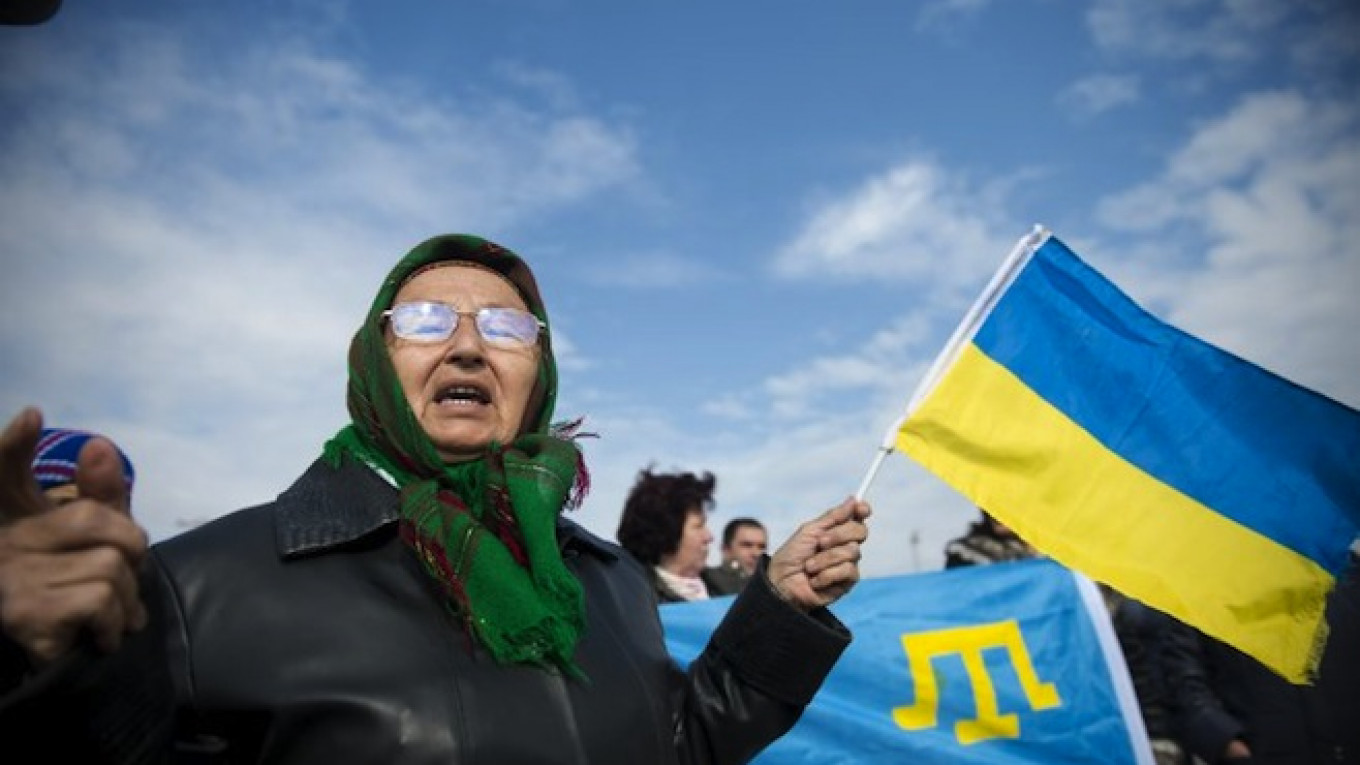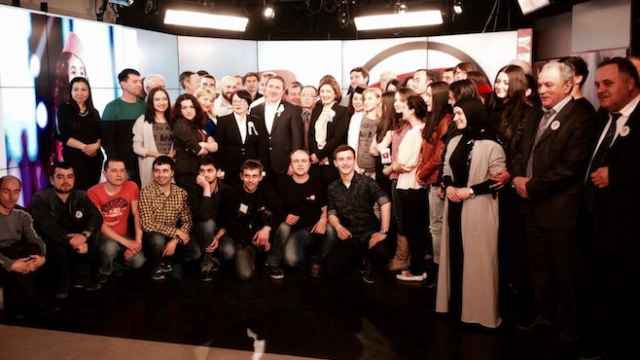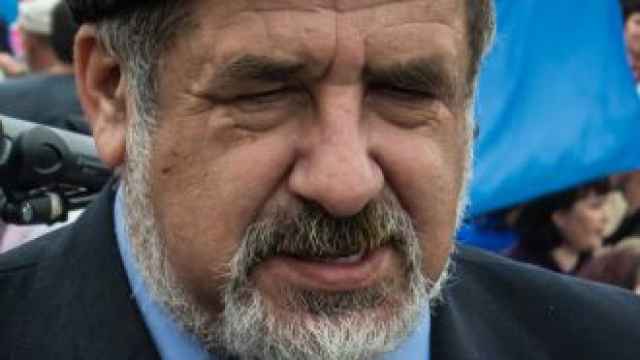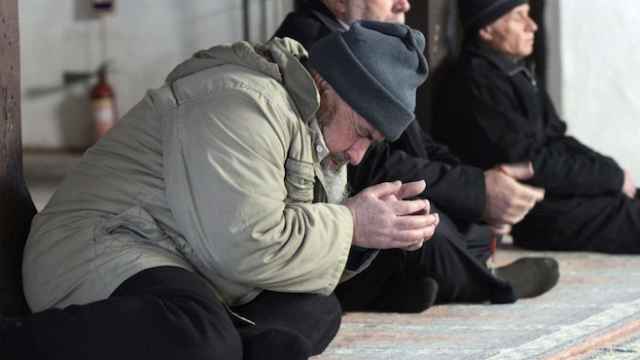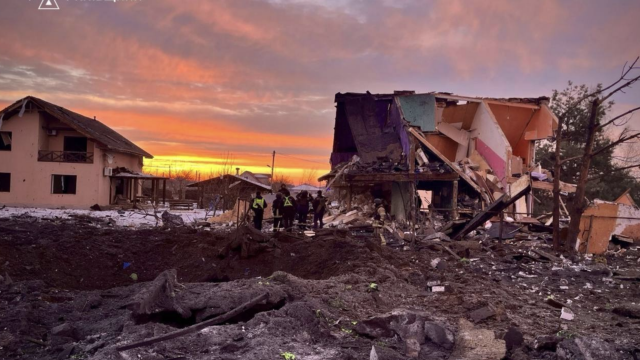An independent television station run by Crimean Tatars that was taken off air this month will be replaced by a Russian government-sponsored channel, Crimean Prime Minister Sergei Aksyonov said this week.
Given the Russian government's practice of keeping a tight grip on television news, the new channel could be used as a powerful tool to mollify Tatars, many of whom reject Russia's annexation of Crimea from Ukraine last year.
The Tatar channel ATR, which broadcast in Russian, Ukrainian and Crimean Tatar, went off air on April 1 after its attempts to register for a broadcast license with Russian authorities were repeatedly rejected. The channel had occasionally been critical of the new authorities.
Aksyonov said Tuesday that Moscow would spend 177 million rubles ($3.5 million) on the new channel, which could begin broadcasting within weeks, news website Gazeta.ru reported.
He said former ATR employees would be welcome to join the project — provided they toe the political line.
“There are only restrictions for people who don't recognize the reunion of Crimea with Russia,” Gazeta.ru quoted him as saying.
Since taking power last year amid Russia's armed takeover of Crimea, Aksyonov has sought to clamp down on pro-Ukrainian views. The vast majority of Crimeans support the region's accession to Russia, but many Tatars, who make up around 10 percent of the population, opposed the annexation for fear of repression under Moscow's rule.
The entire Tatar population was deported from Crimea by the Soviet government in the 1940s over accusations that they had colluded with the Nazis. The community was not allowed to return until the late 1980s.
In the run-up to ATR's closure, Aksyonov said the existence of a channel that created social tension by giving hope that Crimea would return to Ukraine was “unacceptable.”
A Message from The Moscow Times:
Dear readers,
We are facing unprecedented challenges. Russia's Prosecutor General's Office has designated The Moscow Times as an "undesirable" organization, criminalizing our work and putting our staff at risk of prosecution. This follows our earlier unjust labeling as a "foreign agent."
These actions are direct attempts to silence independent journalism in Russia. The authorities claim our work "discredits the decisions of the Russian leadership." We see things differently: we strive to provide accurate, unbiased reporting on Russia.
We, the journalists of The Moscow Times, refuse to be silenced. But to continue our work, we need your help.
Your support, no matter how small, makes a world of difference. If you can, please support us monthly starting from just $2. It's quick to set up, and every contribution makes a significant impact.
By supporting The Moscow Times, you're defending open, independent journalism in the face of repression. Thank you for standing with us.
Remind me later.


